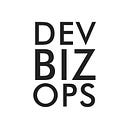The Secret Perk Every Dev Loves Most
So a few months ago, I was at Disney. While the theater of entertainment is mildly interesting, what I was most fascinated about was the MagicBand. It was your room key, your meal plan, your park ticket, and your payment app. Apparently it’s so popular, Disney is the fourth largest distributor globally of wearables. And it all worked without a hitch.
It reminds me of the Steve Jobs quote:
“Simple can be harder than complex: You have to work hard to get your thinking clean to make it simple.”
We live in a world of exponential complexity and knowledge. As I continue to expand this blog, getting back to simplicity in the context of large, complex organizations is an idea I plan to explore more.
One of those simple yet complex ideas is where one works. You might be someone that commutes to work. I have a rather long commute and my journey from South Jersey to downtown NYC is never less than one hour and twenty minutes. Often it is longer when weather or accidents are in the mix. For much of my working life however, remote work was hard to justify. The technology did not exist to make remote work effective at scale.
Today is a different story. Technology is much more advanced. We also live in a world that operates faster, so time and productivity are at a premium. Yet to make remote work function smoothly can be complex. It is that conundrum of maximizing individual productivity while maintaining a strong sense of teamwork, collaboration, and culture.
One of the things that got me thinking about work culture and remote work was the Stack Overflow Developer Survey earlier in the year. Remote work is one of the top benefits as mentioned in this Quartz post:
This is none too surprising, but remote work is still a rarity. Even some notable companies actively discourage it. The research suggests however that workers actually prefer their remote colleagues to those in the office. And for IT organizations desperate to find high quality talent, offering remote work can be a way to broaden the talent pool and draw more candidates.
What to make of the remote work trend? At Stack Overflow, they are very much about supporting a fully remote culture. They have made it work well with developers and other employees in over 20 countries. What helps them stay connected operationally & culturally are tools that enable each person to communicate, share knowledge, and collaborate seamlessly online. They are big proponents of video chat and conferencing whenever they gather together for one-on-one’s, team meetings, or company town halls. It’s the perk staff most came to appreciate, as did I when I was employed at Stack Overflow. It engenders a sense of trust in the people they bring on.
What are your thoughts or experiences regarding remote work? Are there any tips that you could share about successful remote working environments?
What programming language should a professional mathematician know?
We help IT leaders in enterprises solve the cultural challenges involved in digital transformation and move towards a community based culture that delivers innovation and customer value faster. Learn more about our work here.
